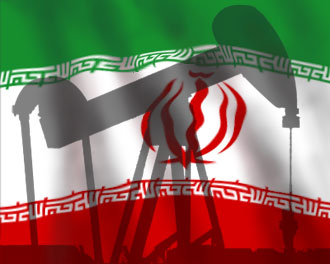Europe's ban on Iranian oil, aimed at piling pressure on Tehran over its nuclear program, may end up breathing new life into the country's aging oilfields, Western and Iranian oil experts said on Friday, Reuters reported.
If Iran were forced to shut in any - or all - of some 500,000 barrels per day (bpd) of supply that would have gone to customers in the European Union, such a move would help rejuvenate, not harm, the Islamic Republic's oil reservoirs.
There is a widespread expectation among oil traders and shipping brokers that Tehran will float much of the displaced European oil on tankers, because it does not want to shut in output and wreck the reservoirs.
But in actual fact, slowing Iran's current production of 3.5 million bpd would be the best thing for its overworked reserves, say veteran geologists. And in the short term, the National Iranian Oil Co (NIOC) may end up doing just that while it works to re-route the oil.
"Iran can shut in 10 to 20 percent of its production without damaging the reservoirs: in fact, it will do them some good," said Peter Wells of geological consultancy Neftex Petroleum. "If it's done properly, shutting in the oilfields should be beneficial as it allows the pressure to build back up."
Wells has first-hand knowledge of Iran's oilfields through his work with Lasmo, now part of Eni, which has invested in the country. He was confident that Iranian engineers would be up to the task, because they have closed down parts of their fields before for routine maintenance.
"If pushed, Iran could shut in about 500,000 barrels a day without doing any harm," said Mehdi Varzi of UK-based Varzi Energy. "But if a forced shut in were to drop output below 3 million, there could be problems in certain fields," said the former NIOC official.
Although the EU embargo kicks in on July 1, buyers of Iranian oil already are scaling back, and big customers in Asia have also reduced purchases, leaving Tehran scrambling to find new homes for around 500,000 bpd starting from March.
OPEC's second-biggest producer expects to place those barrels with relative ease and in any case would be loath to turn down the taps, lose revenue and look as if it were caving in to sanctions.
Its current output allows for exports of about 2.2 million bpd.
Other Western oil experts with companies that have tapped Iran's reserves agreed with Wells.
"Those fields are fairly flexible," said one of the executives. "You might find when you start them up again it's a bit easier."
Iranian engineers have been battling for years to get the best out of Iran's oilfields. But their capacity has slumped from just above 4 million bpd several years ago as Western sanctions have prevented it from securing urgently needed investment from foreign oil companies or financing from foreign banks for its oilfields.
An Iranian official said Iran expected to maintain its oil sales, rather than curb its output.
"Generally the market is big enough to absorb our crude," said Mohammad Ali Khatibi, Iran's representative on the board of governors of the Organization of the Petroleum Exporting Countries.
Taking up to 500,000 bpd off the market would cost Tehran little. A 17 percent gain in crude prices since December would largely offset the decline in exports in terms of lost revenue.
And the calculation in Tehran may be that any decline in its production will make oil more costly in the West. Oil above $120 a barrel is close to the maximum pain threshold for the economies of the developed world.






